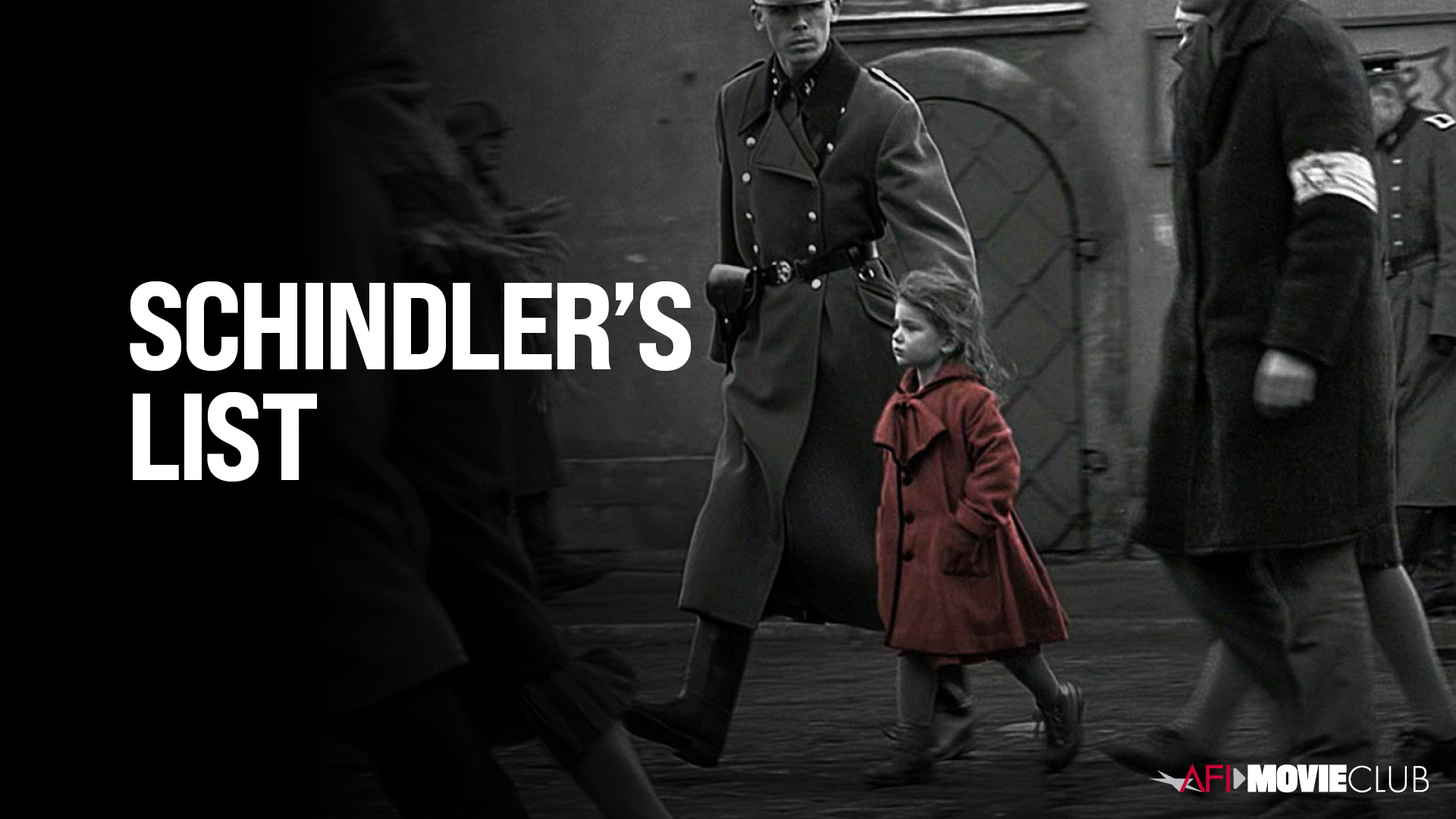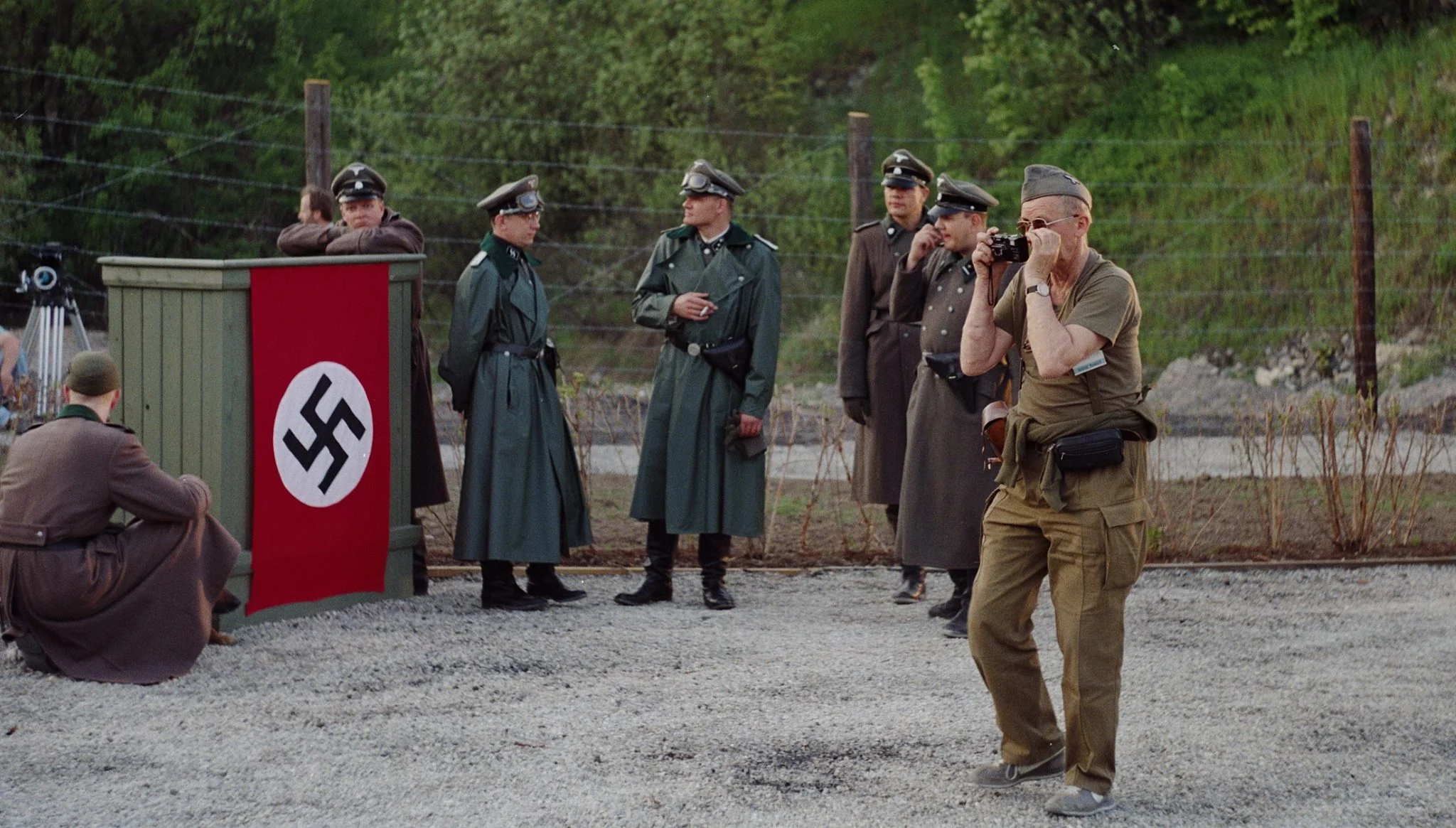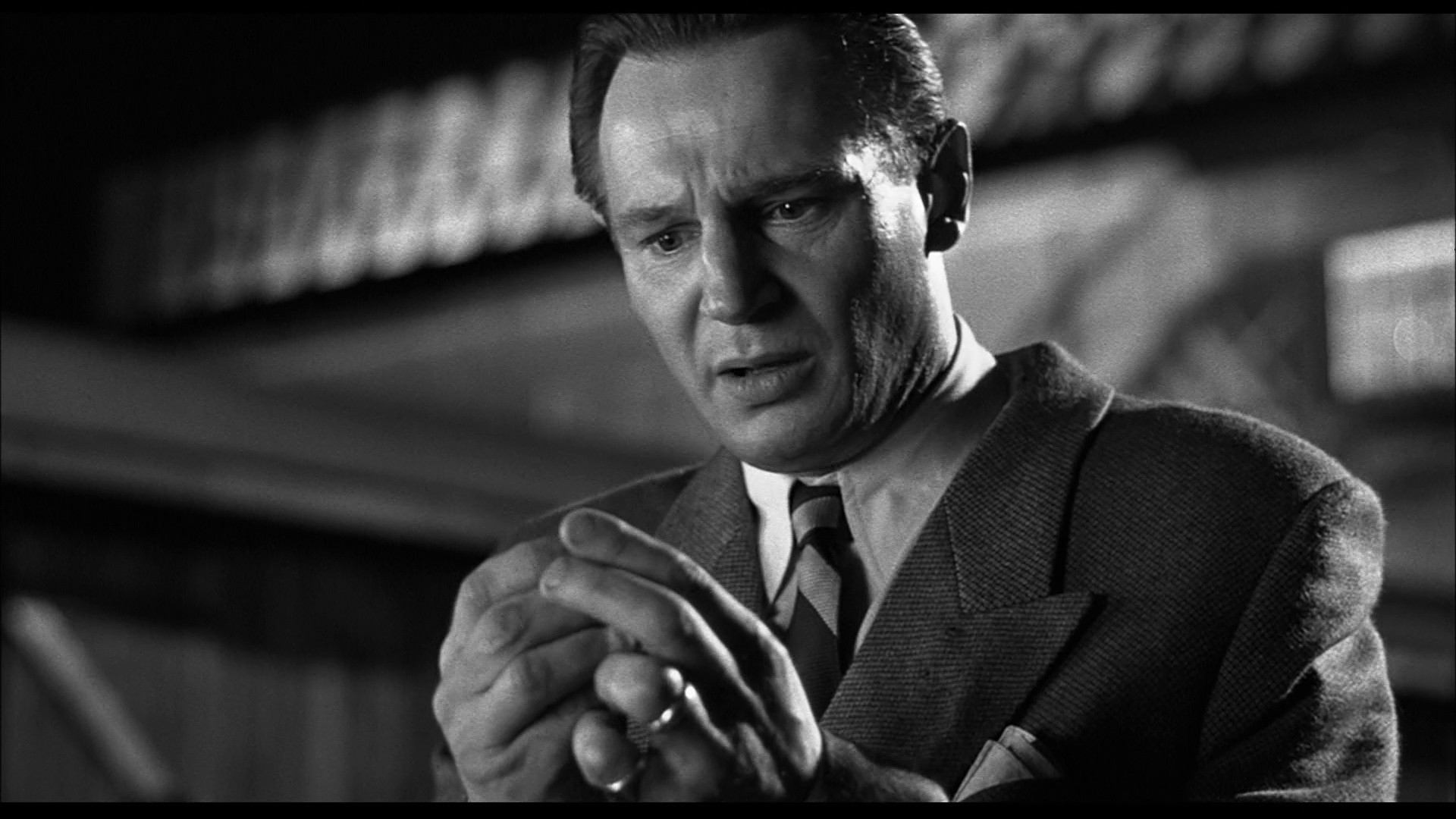🎬 Schindler’s List (1993) — A Heart-Wrenching Tale of Humanity and Redemption

Director: Steven Spielberg
Main Cast:
- Liam Neeson as Oskar Schindler
- Ben Kingsley as Itzhak Stern
- Ralph Fiennes as Amon Goeth
- Caroline Goodall as Emilie Schindler
Plot Overview

Schindler’s List is a powerful historical drama that tells the true story of Oskar Schindler, a German businessman and member of the Nazi Party who saves the lives of over a thousand Jewish refugees during the Holocaust. Set against the harrowing backdrop of World War II, the film chronicles Schindler’s transformation from a profit-driven entrepreneur to a compassionate savior, driven by the moral imperative to protect those facing extermination.
Initially seeking to profit from cheap Jewish labor for his enamelware factory, Schindler’s perspective shifts as he witnesses the brutal treatment and systemic genocide of the Jewish community. With the help of his Jewish accountant, Itzhak Stern, Schindler devises a plan to employ as many Jewish workers as possible, effectively shielding them from the clutches of the Nazis.
As the situation becomes increasingly dire, Schindler’s resolve deepens. He risks his life and fortune, using bribery and cunning to rescue his workers from death camps, ultimately creating a list of those he intends to save — the “Schindler’s List.” The film poignantly captures the moral complexities of humanity amidst horror, showcasing both the depths of cruelty and the heights of courage and sacrifice.
Highlights
- Emotional Impact: The film’s emotional weight is profound, showcasing the horrors of the Holocaust through personal stories of struggle and survival. Its stark portrayal of violence and despair serves as a haunting reminder of the human capacity for both good and evil.
- Cinematic Mastery: Steven Spielberg’s direction is both sensitive and powerful, employing black-and-white cinematography with selective splashes of color to enhance the narrative’s emotional impact. The use of music, particularly the haunting score by John Williams, further elevates the film’s poignant moments.
- Complex Characters: The film features morally complex characters, most notably Oskar Schindler, whose journey from indifference to active resistance against the Nazi regime reflects the potential for change within individuals. Ralph Fiennes’ portrayal of the sadistic Amon Goeth exemplifies the chilling banality of evil.
- Historical Accuracy: Based on Thomas Keneally’s novel Schindler’s Ark, the film adheres closely to historical events, highlighting the atrocities of the Holocaust while celebrating the resilience of the human spirit. It serves as a crucial educational tool, ensuring that the memories of those lost are honored and never forgotten.
Key Themes

- The Power of Individual Action: Schindler’s List illustrates how one person’s actions can make a significant difference in the lives of many, emphasizing the importance of moral courage and the impact of individual choices.
- The Cost of Inaction: The film serves as a stark reminder of the consequences of indifference in the face of injustice. It challenges viewers to reflect on their responsibilities toward others, particularly during times of crisis.
- Humanity in Darkness: Amidst the overwhelming horror of the Holocaust, the film highlights moments of compassion and humanity. Schindler’s evolving sense of duty underscores the potential for kindness even in the darkest times.
Direction and Cinematography
Directed by Steven Spielberg, Schindler’s List employs a striking visual style that enhances its emotional depth. The decision to film in black and white, with occasional color elements (such as the iconic red coat of a young girl), creates a poignant contrast that draws attention to the gravity of the narrative. The cinematography by Janusz Kamiński captures both the beauty and horror of the story, balancing intimate moments with sweeping depictions of the tragedy unfolding.
Legacy and Impact
Schindler’s List is widely regarded as one of the greatest films in cinematic history. It received numerous accolades, including seven Academy Awards, and is celebrated for its cultural and historical significance. The film has played a vital role in Holocaust education, fostering discussions about ethics, morality, and the responsibilities of individuals in the face of tyranny.
Its impact extends beyond the realm of film, inspiring initiatives to remember and honor the victims of the Holocaust, ensuring that their stories are not forgotten. The phrase “Schindler’s List” has become synonymous with the fight against oppression and the importance of standing up for those who cannot stand for themselves.
Conclusion
Schindler’s List is an unflinching portrayal of the Holocaust that transcends mere storytelling, serving as a profound meditation on humanity, morality, and the resilience of the human spirit. Through its compelling narrative, powerful performances, and masterful direction, it leaves an indelible mark on its audience, urging us to remember the past and advocate for a better future. It is a film that not only bears witness to history but also calls us to action, reminding us of the importance of compassion in a world often marked by cruelty.
The Haunting of Alice: A Finnish Soldier’s Revenge | SISU 2022
Suggested videos for you:
Meg 2 : Jaws of Terror: A Deadly Encounter in the Deep
Suggested videos for you:
The Turning Point of World War II: The Battle of Midway
Suggested videos for you:
Rambo: The Last Stand ( 2008 ) | Movie Action
Suggested videos for you:
Against the Odds: A Fractured Alliance
Suggested videos for you:
Betrayal at the Table: A Dinner Gone Wrong
Suggested videos for you:
Latest Furiosa 2024 is a Fan Favorite
Suggested videos for you:











